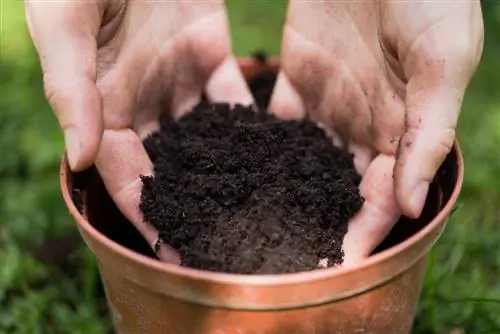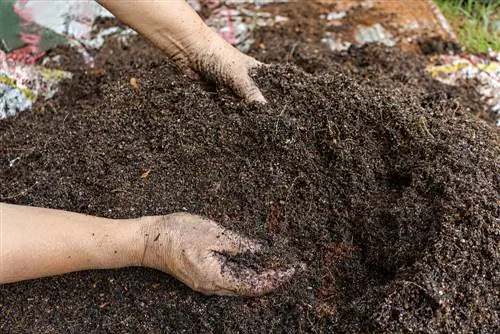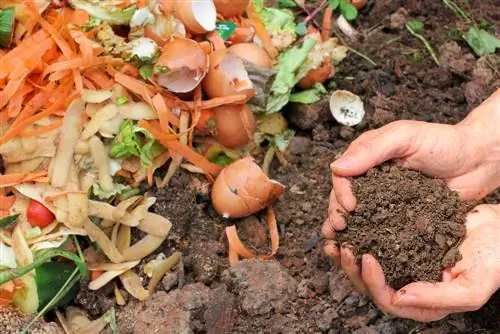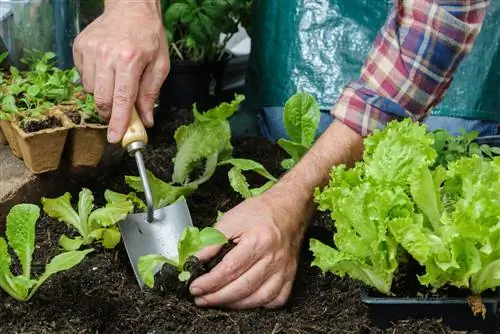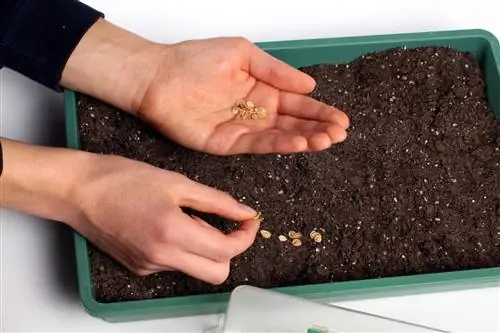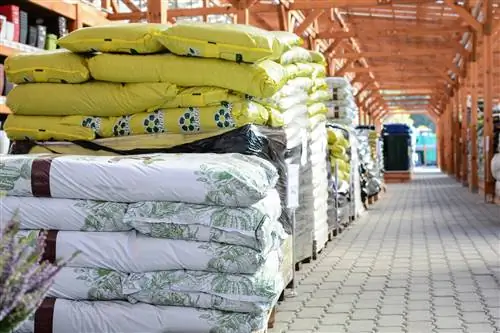- Author admin leonars@hobbygardeners.com.
- Public 2023-12-16 16:46.
- Last modified 2025-01-23 11:22.
Potting soil can be bought in specialist stores with or without peat. There are users for both types of potting soil who praise the respective advantages. What positive and negative aspects can be mentioned?
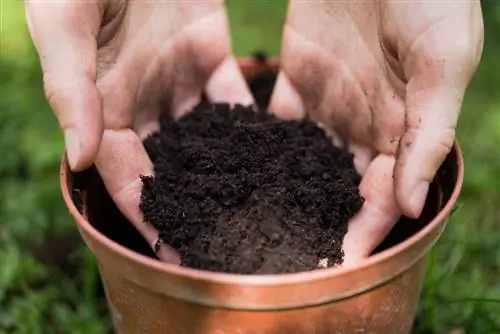
When should you choose potting soil with or without peat?
Potting soil with peat retains water well and has few nutrients, making it free of weed seeds and pathogens. Peat-free soils contain substitute materials such as compost, bark humus, coconut or wood fibers and promote environmentally friendly growth, but with increased watering and fertilization requirements.
What is peat?
Peat is an organic sediment formed from dead plants standing in shallow water. Over the course of a year, only a layer of 1 mm forms in the bog. You can therefore imagine how long it takes to create a layer of peat that can be broken down. During mining, the moor landscape also disappears as the soil dries out and the moor plants die. Environmentalists are pushing for the use of peat-reduced or peat-free soils in gardening.
Potting soil contains up to 90% peat. It is well tolerated by most plants and stores water and rain water excellently. It only contains a small amount of nutrients, so it is almost free of unwanted weed seeds, bacteria and other pathogens.
The alternative: peat-free and peat-reduced soils
If you want to do without peat for the benefit of the moors, you can replace it with:
- Compost
- Wood fibers
- Coconut fibers
- Bark humus
However, the substitutes do not retain water as well, so watering must be done more frequently. The nutrients are also used up more quickly, which requires additional fertilization. Nevertheless, flowers, herbs and vegetables thrive optimally in peat-free soil.
Compost as a peat substitute
As an organic waste product, compost is full of nutrients. It nourishes the plants and loosens the soil. However, you should make sure that it does not contain any plastics.
Bark humus as a peat substitute
The bark of softwoods is crushed, fermented and enriched with nitrogen. Bark humus has good water storage capacity, relatively few nutrients and promotes the root growth of cultivated plants.
Coconut fibers instead of peat
Coconut fibers are a waste product that is created when coconut is extracted. Since it is not a domestic product, long transport routes are involved. In addition, s alt has to be removed from the material with a lot of energy, as our flowers and vegetables cannot tolerate this.
Wood fibers instead of peat
Wood fibers are similar to peat in their properties. Since it is a domestic product, its production is sustainable. They allow the plants to root well and ensure a good oxygen content in the soil.

